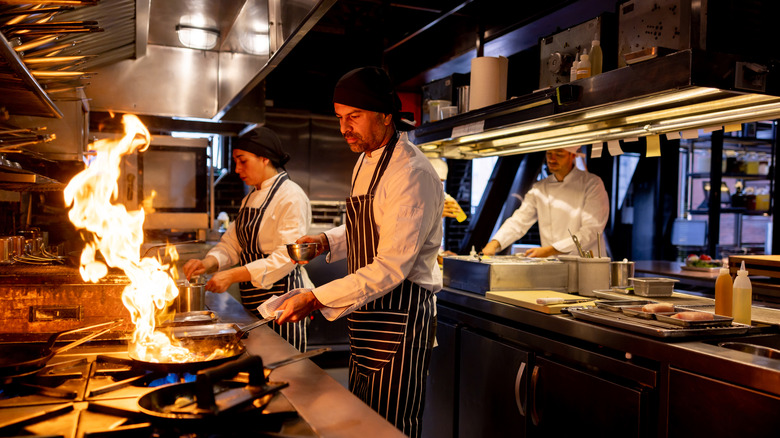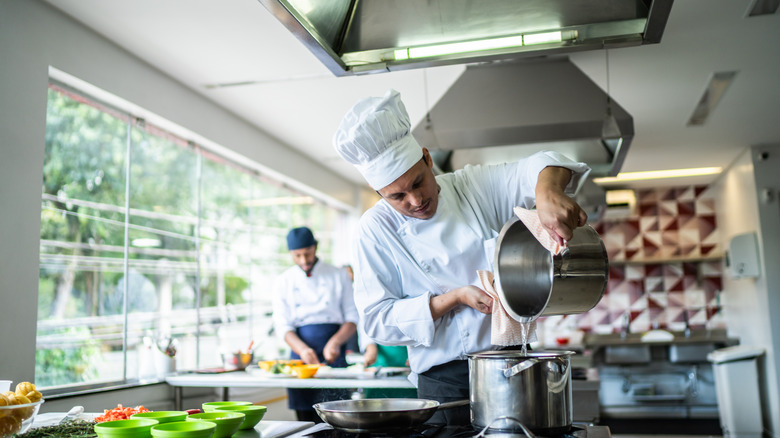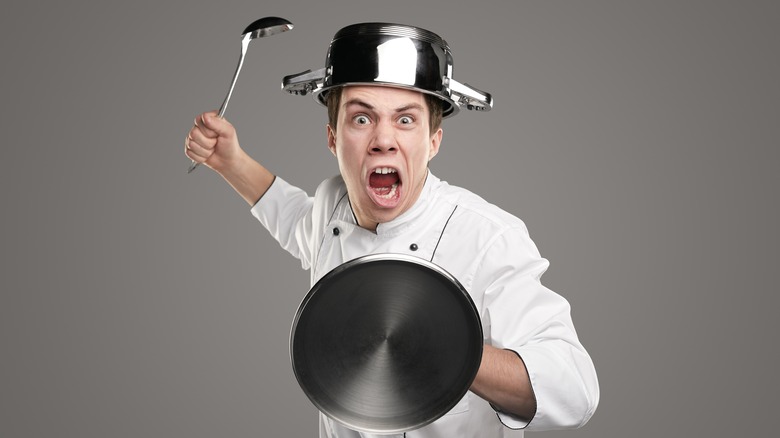Why Restaurant Kitchens Only Close For A Few Hours Each Day
While some restaurants are 24-hour affairs (some diners never close, for instance), typically, every restaurant has a closing time. So when that happens and the last customer has left for the evening, you might imagine everyone cleans up, turns off the lights, goes home, and the place lies quiet until the following day. The kitchen staff probably comes in shortly before the next shift to get food ready, and things get going from there, right?
It turns out that's not quite how it works at all. Restaurant kitchens, especially high-end ones, keep going to the point where they only close for a few hours a day — if they even close at all. The reason has to do with just how much effort it takes to keep a restaurant in business and how hard it really is to make sure the supply of prepared ingredients keeps up with customer demand.
Preparing fresh food requires more time and effort
This doesn't apply nearly as much to many chain restaurants, which typically get a lot of their product pre-made and frozen to preserve product standardization, or to any restaurant that skimps a bit on quality and goes for cheaper frozen stuff. But if a restaurant makes entirely fresh products in-house, their kitchen probably rarely or never goes dark. This is especially true with fine dining establishments that put a ton of care and effort into their food, both from a taste and aesthetic standpoint. When food looks and tastes impressive in a fancy restaurant, it's most likely that a lot of work went into making that happen. Fine dining may have a lot of rules for customers that don't make much sense, but better food requiring greater effort is a rule that's both simple and easy to grasp.
For this reason, the more successful a restaurant is, the less time their kitchen will stay dark. This is something of a self-reinforcing feedback loop: More success for the business means it can afford to pay more prep cooks to spend more time preparing things. And a good way to spot this is in the menu itself: Is it limited and high-priced? Paradoxically, fewer items can mean a lot of work goes into making those items fresh.
Don't think this means you can get food whenever you want
Does that mean you should feel comfortable trying to get a restaurant kitchen to make you food outside its regular business hours? No, it absolutely does not. Many cooks who come in for the night shift are specifically prep cooks, whose entire job is to prepare the ingredients needed for dishes that other chefs will cook when the restaurant is open. And the ones who are more regular cooks are probably working 14-hour days; the last thing they need is for you to add to the stress of their job by trying to get a hamburger at 4 a.m. just because they happen to be in the building.
Still, it's good to know how much work goes into operating a restaurant. At the very least, it should hopefully instill some greater appreciation for how hard cooks have to work — often at any time of the day or night.


